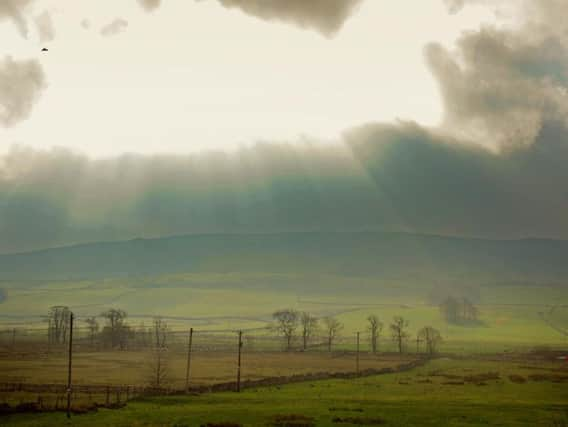'Smarter farming can meet climate change emissions target without losing grazing livestock', NFU's Guy Smith says
This article contains affiliate links. We may earn a small commission on items purchased through this article, but that does not affect our editorial judgement.


According to the Committee on Climate Change (CCC), cutting the UK’s greenhouse gases to zero by 2050 should become a legal target as soon as possible and to meet that aim, it says this could require people to east less meat and dairy.
The country’s farming union said this was a misguided suggestion and that the most effective ways for agriculture to meet net zero targets is through improvements in productivity, carbon capture and renewable energy production.
Advertisement
Hide AdAdvertisement
Hide AdAn ambitious target has already been set by the NFU, having earlier this year called on the industry to hit the net zero target by 2040.
Agricultural action 'vital'
Responding to the committee’s latest report, Guy Smith, the union’s deputy president, said: “The NFU is working towards an ambitious goal of reaching net zero greenhouse gas emissions across the whole of agriculture in England and Wales by 2040, as a contribution to the CCC’s proposed 2050 target. Our organisations are aligned: acting to tackle damaging climate change is vital.
“However, we will not halt climate change by curbing British production and exporting it to countries which may not have the same environmental conscience, or ambition to reduce their climate impact.
“Rather, we must farm smarter, focusing on improving productivity, encouraging carbon capture and boosting our production of renewable energy.”
Grazing animals have role to play
Advertisement
Hide AdAdvertisement
Hide AdMr Smith added: “In Britain, 65 per cent of our farmland is best suited to grazing animals, so our ambition is that the climate impact of UK grazing is amongst the lowest in the world. Already, research from the UN’s Food and Agriculture Organisation shows that beef production in Western Europe is 2.5 times more carbon-efficient than the global average. At the same time UK farmland conserves important carbon stocks in England’s uplands.
“British farmers have an important role to play in tackling climate change and our members are committed to this challenge, alongside fulfilling their responsibility to the public in providing high quality, sustainable and affordable food.”
Countryside's biggest threat
Political uncertainty continues to undermine farmers’ abilities to plan for the future of their businesses but it is climate change that poses the greatest threat to the countryside, according to Tom Fyans, deputy chief executive at the Campaign to Protect Rural England, who is adamant that the countryside has a major role to play in mitigating its impacts.
Commenting on the recommendations of the Committee on Climate Change, Mr Fyans said: “From prolonged heat waves and moorland wildfires, to severe and more frequent flooding, our countryside is under severe pressure from the impact of climate breakdown, but it will also provide many of the solutions.
Advertisement
Hide AdAdvertisement
Hide Ad“By prioritising policies and funding that will see better land use, dramatically reduce emissions from agriculture, increase the planting of hedgerows and trees, and restore our peatlands, we can drive carbon back into the ground.
“Our transition to renewable energy must intensify and a deadline set for the phasing out of fossil fuels.”
He also called for the Government’s “pro-fracking agenda” to be dropped.
Change has to sweep society
Other recommendations made by the committee this week included an end to heating homes with traditional gas boilers, more green electricity, a switch from petrol and diesel cars to electric vehicles, more walking and cycling, and people taking fewer flights.
Advertisement
Hide AdAdvertisement
Hide AdAny remaining pollution in 2050 will need to be offset through measures to capture carbon such as planting trees, the committee said.
The shift is achievable with known technologies, the committee’s report said, and these actions combined will deliver economic opportunities, as well as warmer and more comfortable homes, cleaner air, better health and boost wildlife.
The committee’s report was requested by UK governments last year and warns the proposed 2040 date for phasing-out new petrol and diesel vehicles is too late, and that this should happen as early as 2030.
Speaking in the Commons this week, Labour leader Jeremy Corbyn told MPs they must declare a “climate emergency” and take dramatic action to prevent the “irreversible destruction of the environment within our lifetimes”.
Advertisement
Hide AdAdvertisement
Hide AdEnvironment Secretary Michael Gove said: “We recognise the situation we face is an emergency, it is a crisis, it is a threat that all of us have to unite to meet.”